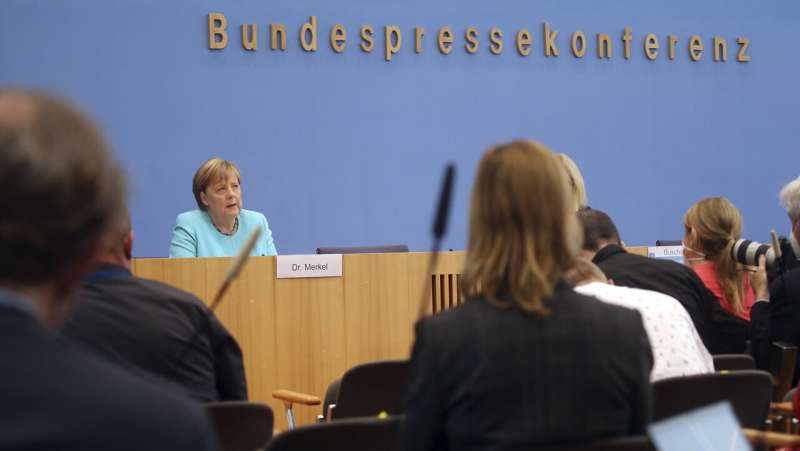German Chancellor Angela Merkel speaks, during her annual summer news conference in Berlin, Germany, Thursday, July 22, 2021. Merkel said Thursday that new coronavirus infections in Germany are once again rising at worrying speed. She appealed to her compatriots to get vaccinated and persuade others to do so. Credit: Wolfgang Kumm/dpa via AP
Chancellor Angela Merkel on Thursday defended her decision to end Germany's use of nuclear power next year, but acknowledged that it will make it harder to reduce greenhouse gas emissions in the short term.
The decision, taken in the wake of the Fukushima nuclear disaster 10 years ago, is regarded as one of the pivotal moments during Merkel's 16 years in office. Critics have said the move places a double burden on Germany as it seeks to cut carbon emissions to zero by 2045.
"There are other countries that choose differently and in doing so it will be easier for them, in some ways, to achieve climate neutrality," Merkel told reporters in Germany. "I still believe that in the long term nuclear energy isn't a sustainable form of energy production."
The phase-out of nuclear power by the end of 2022 has made Germany more reliant on coal over the coming years compared to France or Britain. But the German government has also committed to ending the burning of coal by 2038, a goal Merkel said could only be achieved by significantly expanding the use of renewable energy and relying on less-polluting natural gas as a bridge technology.
She rejected the idea that a future government might reverse the nuclear decision, saying that "for Germany, the die is cast" and called instead for greater efforts to expand production of hydrogen, a carbon-free fuel that experts say will be needed by the country's industry.
© 2021 The Associated Press. All rights reserved. This material may not be published, broadcast, rewritten or redistributed without permission.
























